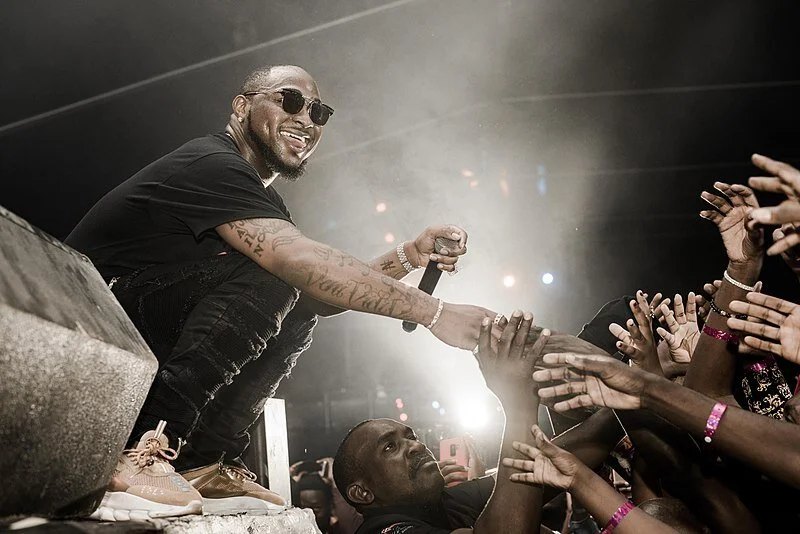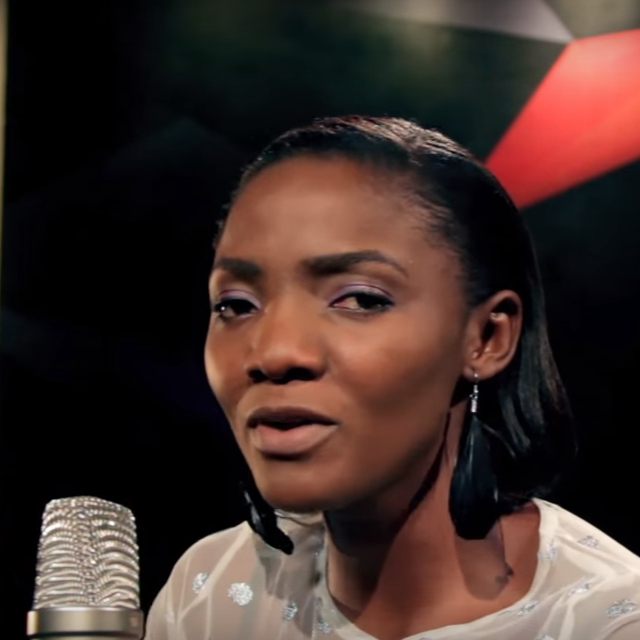From influencing the #EndSARS protests to confronting the commodification of African culture, these artists have unique approaches to their art.
DaVido performing. Wikimedia user Rasheedrasheed. CC BY-SA 4.0.
Nigerian musicians have been spreading their influence all over the world for the past few decades. Following in the footsteps of Fela Kuti, contemporary artists experiment with a plethora of genres, fine-tuning their style as they progress. Renowned artists such as Burna Boy, DaVido and Cruel Santino are the driving forces of the Afrobeats movement, which combines African subgenres, American hip-hop, and R&B. Here are 10 influential Nigerian musicians to listen to.
1. Tony Allen
Tony Allen. Pierre Priot. CC BY-NC-ND 2.0.
Tony Allen is the father of the Afrobeat genre. Allen passed away in April 2020 after releasing his final album, “Rejoice,” in collaboration with the late South African jazz artist, Hugh Masekela. Allen’s polyrhythmic drumming complements Masekela’s trumpet in this riveting jazz album. From his earlier days of performing with Fela Kuti to his more recent collaborations with Skepta and Oumou Sangare, Allen has pioneered the combination of American jazz with African beats. After a career which explored a multitude of scenes in the music world, Allen falls back into his Afrobeat roots in his very last album.
2. Naira Marley
Rapper Naira Marley is a contentious figure in Nigeria. Marley is known as a founder of the genre Afro-bashment, a combination of Caribbean influences, American trap rap, West African beats and British rap. Naira Marley is known for his controversial beliefs and ideas; in “Am I a Yahoo Boy,” he offers an unabashed critique of the Nigerian government, higher education and social conservatism. His single “Koleyewon,” which was released in December 2020, is a fast-paced trap song in Yoruba.
3. DaVido
DaVido performing. Wikimedia user Rasheedrasheed. CC BY-SA 4.0.
American-born musician DaVido is a world-renowned Afrobeats artist who synthesizes elements of R&B, rap and Afropop to build up his discography. His heavily auto-tuned vocals and his simple audio production make up his signature sound. DaVido’s most recent album, “A Better Time,” featured Nicki Minaj, Chris Brown and Lil Baby. Despite its famous featured artists, the album’s first track, “FEM,” received the most attention globally. “FEM,” which means “shut up” in Nigerian slang, was labeled the anthem of the #EndSARS protests in Nigeria, which called for the dissolution of the Special Anti-Robbery Squad. Although the artist himself didn’t intend to express a politically charged message, he was nonetheless impassioned by his country’s fight against police brutality.
4. Cruel Santino
Up-and-coming musician Cruel Santino came to the world stage in 2019 with his debut album “Mandy & The Jungle.” Although he is one of the younger artists of the Nigerian music renaissance, Cruel Santino offers an impressive range of styles in his first album. The mellow, laid-back beat of “Sparky” contrasts with the country twang of “Diamonds / Where You Been.” His new single “End of The Wicked” showcases his maturation as a musician and an artist: the solemn piano is redeemed by a syncopated jungle beat, which accompanies his verbose rap.
5. Odunsi (The Engine)
Odunsi (The Engine) is a master of his craft. His discography is all-encompassing: church choirs and spoken word start off his 2018 album “Rare”; an orchestra plays over his verse in his greatest hit “Tipsy”; a vaporwave synth paints “Luv In a Mosh” blue. Odunsi (The Engine)’s album covers visually harmonize with his music. The ethereal blue moon in “Everything You Heard Is True,” which was released in May 2020, mirrors Odunsi’s experimentation with atonal melodies and distortions. On top of this hypnotic album, the musician released two singles in 2020: “Decided” and “Fuji 5000.” Both are dramatically different from each other; the only constant is Odunsi’s effortless flow.
6. Simi
Simi at NdaniTV. NdaniTV. CC BY 3.0.
Simi’s distinctly sweet voice is the honey that binds her music together. Less is more in her 2017 album “Simisola,” where her vocals and the acoustic guitar are the only elements that matter. The Nigerian singer started off as a gospel singer in 2008, but transformed her career in 2014 after the success of her singles “Tiff” and “E No Go Funny.” Simi released “Restless II” in 2020, which is a change of pace from her slow crooning. In an interview with OkayAfrica, the singer admits that, “This project is a risk as well, it’s even more of a risk because it’s R&B and Nigeria is not necessarily the biggest R&B market.” As Simi continues to dabble in hip-hop, she comes out with more powerful hits like “No Longer Beneficial” and “There for You.”
7. Niniola
Niniola. Wikimedia user Naijareview. CC BY-SA 4.0.
Often regarded as the “Queen of Afro-House,” Niniola is a global star who fights to find her footing as an empowered Yoruba woman. Niniola rose to fame from her 2017 hit “Maradona,” a seemingly light pop tune which dealt with the traumas of her upbringing. As a girl growing up in a polygamous household, Niniola experienced the double standards of a patriarchal family. Reckoning with her womanhood, Niniola recounts the experiences of a woman who is cheated on by her husband, woes which are usually kept secret. With an album and a couple of huge hits under her belt, Niniola comes back strong with her new album “Colours and Sounds,” which includes a refreshing take on reggae, pop and dancehall.
8. Burna Boy
Burna Boy’s album “Twice as Tall” covers a variety of topics, from how the artist grapples with the reality of colonialism to the frenzy of a night out. Burna Boy is a household name in the music industry, and this album attests to the singer’s mastery over songwriting and producing. In his song “Monsters You Made,” Burna Boy addresses Western imperialism and how its consequences are still felt today. His song “Alarm Clock” begins with voice recordings, opera and a saxophone, and quickly switches to an upbeat rap song.
9. Deto Black
Model and rapper Deto Black refuses to be labeled as an Afrobeats musician. The feminism and sex positivity of her music is obvious and brought to the forefront of her message as an “alté,” or alternative, artist. As a Lagos-based rapper who lived in the U.K. and the U.S. growing up, Deto Black navigates the different worlds by calling for gender equality in Nigeria.
10. Zlatan Ibile
Zlatan is a new Nigerian singer and dancer who found fame through his viral song “Zanku” (Legwork), which was accompanied by a famous dance. Since 2019, the singer has released three albums, started a record label, and released the successful single “Lagos Anthem.” “Lagos Anthem” is an energetic dance song with darker lyrics criticizing the government for its flawed policies.
These Nigerian musicians are beginning to impact American and British pop music. Although each of these individuals comes from a different discipline and background, they all have a commitment to experimenting in their craft. Some thrive in and renovate the Afrobeats movement, while others resist the umbrella term. The common ground between alté musician Deto Black’s tackling of gender inequality and DaVido’s propelling of the #EndSARS revolution is their commitment to the well-being of Nigeria.
Heather Lim
Heather recently earned her B.A. in Literatures in English from University of California, San Diego. She was editor of the Arts and Culture section of The Triton, a student-run newspaper. She plans on working in art criticism, which combines her love of visual art with her passion for journalism.


























